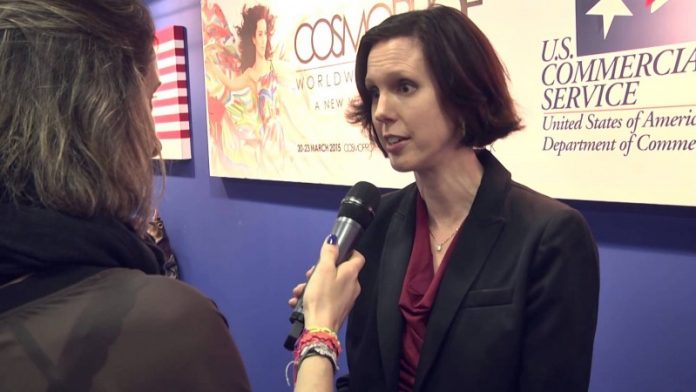
Facultatea de Studii Europene a Universității Babeş-Bolyai găzduieşte joi, 11 ianuarie 2018, de la ora 11.00, dezbaterea cu tema „100 DE ANI DE LA „DISCURSUL ÎN 14 PUNCTE” AL PREŞEDINTELUI WOODROW WILSON. ORDINEA EUROPEANĂ: ATUNCI ŞI ACUM”.
Invitaţii dezbaterii, Abigail Rupp, adjunct al ambasadorului SUA la Bucureşti, acad. prof. Ioan-Aurel Pop, rectorul UBB, conf. dr. Sergiu Mişcoiu şi conf. dr. Liviu Ţârău, vor analiza din perspectivă diplomatică, istorică şi de relaţii internaţionale actuale semnificaţia discursului prezidenţial susţinut în faţa Congresului SUA, în data 8 ianuarie 1918.
Evenimentul este organizat de Grupul de Reflecţie şi Analiză Internaţională CITADEL, think-tank de analiză în domeniul politicii internaționale și va avea loc în sala Jean Monnet a Facultăţii de Studii Europene (str. Em. de Martonne nr. 1).
Dezbaterea va fi moderată de conf. dr. Valentin Naumescu, fondatorul şi coordonatorul Grupului de Reflecţie şi Analiză Internaţională CITADEL.




Naumescu și al său CITADEL, reușesc să se poziționeze cu regularitate de partea greșită a chestiunii. Woodrow Wilson e fostul președinte care prin aducerea Statelor Unite în I-ul război mondial, a reușit performanța de a-l prelungi cu peste un an. Mai mult de un milion de victime au fost făcute datorită acestei prelungiri. Părțile beligerante erau epuizate și gata să facă pace încă din 1915, dar SUA a fost târâtă în război, printr-un act de o parșivenie cutremurătoare al englezilor care transportau muniții la bordul navelor civile. Astfel, Lusitania a fost scufundată de submarine germane, oferind lui WW pretextul pentru a aduce SUA în război. WW își dorea acest război, dar nu avea cum să îl declare pînă atunci.
Cum ar fi arătat Europa astăzi, dacă acel milion de albi nu ar fi fost uciși, iar Germaniei nu i se impunea condițiile absolut umilitoare care au dus la al II-lea război mondial și alte câteva milioane de europeni morți?
Credeți că ar mai fi existat condițiile propice invaziei musulmane a Europei?
Despre pacea de Crăciun, din 1914 – găsiți și filmul, cel din anii 60. Merită văzut.
Roughly 100,000 British and German troops were involved in the unofficial cessations of hostility along the Western Front.[15] The first truce started on Christmas Eve 1914, when German troops decorated the area around their trenches in the region of Ypres, Belgium and particularly in Saint-Yvon (called Saint-Yves, in Plugstreet/Ploegsteert – Comines-Warneton), where Capt. Bruce Bairnsfather described the truce.[16]
The Germans placed candles on their trenches and on Christmas trees, then continued the celebration by singing Christmas carols. The British responded by singing carols of their own. The two sides continued by shouting Christmas greetings to each other. Soon thereafter, there were excursions across No Man’s Land, where small gifts were exchanged, such as food, tobacco and alcohol, and souvenirs such as buttons and hats. The artillery in the region fell silent. The truce also allowed a breathing spell where recently killed soldiers could be brought back behind their lines by burial parties. Joint services were held. In many sectors, the truce lasted through Christmas night, continuing until New Year’s Day in others.[6]
On Christmas Day, Brigadier-General Walter Congreve, then commanding 18 Infantry Brigade, stationed near Neuve Chapelle, wrote a letter recalling the Germans initiated by calling a truce for the day. One of his brigade’s men bravely lifted his head above the parapet and others from both sides walked onto no man’s land. Officers and men shook hands and exchanged cigarettes and cigars, one of his captains „smoked a cigar with the best shot in the German army”, the latter no more than 18 years old. Congreve admitted he was reluctant to personally witness the scene of the truce for fear he would be a prime target for German snipers.[17]
Bruce Bairnsfather, who served throughout the war, wrote:
I wouldn’t have missed that unique and weird Christmas Day for anything…. I spotted a German officer, some sort of lieutenant I should think, and being a bit of a collector, I intimated to him that I had taken a fancy to some of his buttons…. I brought out my wire clippers and, with a few deft snips, removed a couple of his buttons and put them in my pocket. I then gave him two of mine in exchange…. The last I saw was one of my machine gunners, who was a bit of an amateur hairdresser in civil life, cutting the unnaturally long hair of a docile Boche, who was patiently kneeling on the ground whilst the automatic clippers crept up the back of his neck.
https://en.wikipedia.org/wiki/Christmas_truce